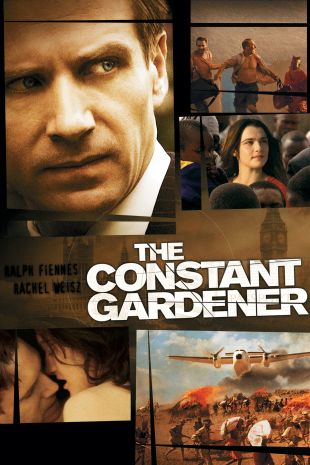
Director Fernando Meirelles made an international splash with the brilliantly gritty and stylish City of God, and he brings a surprising amount of the same vibrant energy and political consciousness to his English-language debut, The Constant Gardener. The film starts out comparatively sedate, with Justin (Ralph Fiennes) reacting with ineffectual calm to his wife's death, even consoling his friend Sandy (Danny Huston) when he gets distressed while identifying the body. Appropriately, the film comes alive in the flashbacks to Tessa's (Rachel Weisz) life, and as she traverses the teeming city of Nairobi, the screen pulsates with color and the energy of cinematographer César Charlone's (returning from City of God) street-level handheld camera work. Fiennes delivers a perfectly modulated performance. Justin is a passive, ineffectual minor diplomat who marries a beautiful younger woman he doesn't really know. "You could learn me," she tells him, and over the course of the film, it becomes clear that Justin is more concerned with understanding his murdered wife than with avenging her death. This may frustrate audiences accustomed to catharsis, but it's the only way to treat the material truthfully. The plot is similarly complex and mature, and requires concentration, but the tragic romance at the core of the film keeps viewers emotionally involved. Meirelles and screenwriter Jeffrey Caine, adapting John Le Carré's novel, approach it with searing honesty as Justin uncovers, right under his nose, a distressingly convincing corrupt world where everyone is guilty and no one is responsible. The Constant Gardener offers a superb, thoughtful, and finally heart-wrenching example of the conflation of the personal and the political.
